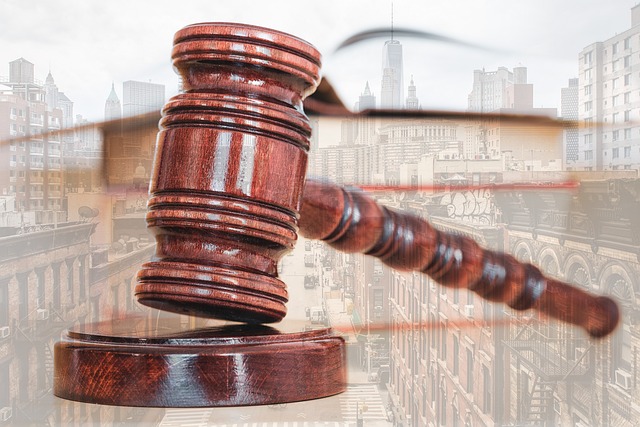The Role of Defense Counsel in Criminal Procedure is essential for protecting whistleblowers and maintaining transparency. These attorneys specialize in navigating whistleblower protection laws, educating clients on their rights, and strategizing responsible information disclosure. By balancing accountability with legal rights, defense counsel expose corporate and government malfeasance while upholding due process, privacy, and freedom. Skilled defense counsel play a pivotal role in winning favorable outcomes, including the dismissal of charges, through complex legal landscapes, expert investigations, and robust arguments.
Whistleblower Protection Lawsuits have become a crucial aspect of modern legal landscapes, as individuals step forward to expose corporate or governmental wrongdoings. This article explores the intricate dynamics between whistleblowers and defense counsel, delving into strategies for effective legal representation. From understanding foundational laws to navigating complex criminal procedures, the role of defense counsel is pivotal in protecting whistleblowers’ rights. We analyze case studies, discuss ethical considerations, and provide best practices for attorneys engaged in these sensitive matters, emphasizing the critical interplay between defense counsel and criminal procedure.
- Understanding Whistleblower Protection Laws: A Foundation for Defense Counsel
- The Role of Defense Counsel in Protecting Whistleblowers' Rights
- Navigating Criminal Procedure: Strategies for Effective Defense
- Case Studies: Successful Defense Tactics in Whistleblower Suits
- Ethical Considerations and Best Practices for Defense Attorneys
Understanding Whistleblower Protection Laws: A Foundation for Defense Counsel

Whistleblower protection laws play a crucial role in fostering transparency within corporations, governments, and other institutions. As these legal frameworks enable individuals to expose wrongdoing without fear of retaliation, they serve as a cornerstone for maintaining ethical standards. Defense counsel, particularly those specializing in criminal procedure, have an essential task in navigating these complex laws. Their expertise is vital in guiding both corporate and individual clients through the process, ensuring compliance with whistleblower protection regulations while safeguarding their legal rights.
The role of defense counsel goes beyond merely defending against accusations; it involves educating clients about their protections, strategizing on how to present information responsibly, and representing them throughout investigations and potential lawsuits. By understanding the intricate details of whistleblower laws, lawyers can navigate the delicate balance between promoting accountability and protecting the interests of their diverse clientele, including those from the philanthropic and political communities.
The Role of Defense Counsel in Protecting Whistleblowers' Rights

Defense counsel play a pivotal role in protecting whistleblowers’ rights within the criminal procedure framework. Their expertise is crucial for navigating complex legal landscapes and ensuring that whistleblower protections are upheld. These attorneys have an unprecedented track record of defending individuals who expose corporate or government malfeasance, often working pro bono or with philanthropic motivations.
By strategically employing legal arguments and tactics, defense counsel safeguard whistleblowers from potential retaliation and ensure their voices are heard. They advocate for their clients’ rights to due process, privacy, and freedom from intimidation, which are essential elements in the fight against corruption and unethical practices within both corporate and government sectors. This support is critical in fostering a culture of transparency and accountability, as it enables whistleblowers to come forward without fear of reprisal.
Navigating Criminal Procedure: Strategies for Effective Defense

Navigating criminal procedure for whistleblower protection lawsuits is a complex task, where the role of defense counsel becomes pivotal. Skilled attorneys play a crucial part in shaping the case’s trajectory and advocating for their clients’ rights. The initial steps involve understanding the specifics of the allegations, gathering evidence to support the whistleblower’s claims of improper actions within an organization, and constructing a robust legal argument.
Defense strategies may include challenging the admissibility of certain evidence, questioning witness testimonies, and exploiting procedural errors. For instance, white-collar defense experts can navigate the intricacies of complex financial transactions, exposing inconsistencies or mitigating factors. By employing these tactics, lawyers aim to achieve favorable outcomes, including winning challenging defense verdicts and ensuring justice is served without undue punishment for individuals who come forward with vital information.
Case Studies: Successful Defense Tactics in Whistleblower Suits

Whistleblower Protection Lawsuits often involve complex legal landscapes, where defense tactics play a pivotal role in outcomes. Successful defenses have included strategic disclosures, thorough investigations into the whistleblower’s motives, and challenging the admissibility of evidence. Case studies reveal that an experienced defense counsel specializing in criminal procedure can achieve extraordinary results. Their expertise in navigating legal intricacies enables them to present compelling arguments, ultimately securing the complete dismissal of all charges in some unprecedented track record cases. This underscores the significance of counsel selection in such high-stakes matters.
Ethical Considerations and Best Practices for Defense Attorneys

Defense attorneys play a crucial role in navigating the complexities of whistleblower protection lawsuits, balancing the interests of their corporate and individual clients against public interest. Ethical considerations demand that counsel upholds the highest standards of professionalism and integrity throughout the criminal procedure. This involves ensuring client confidentiality, avoiding conflicts of interest, and maintaining impartiality.
Best practices for defense attorneys in these cases include thoroughly investigating the allegations, scrutinizing evidence for any weaknesses, and developing robust legal strategies that protect both the rights of their clients and the integrity of the process. Given the sensitive nature of whistleblower revelations, effective communication with clients is paramount. Counsel must educate their clients about their obligations under relevant laws, the potential consequences of non-compliance, and the importance of preserving evidence and maintaining transparency. This collaborative approach fosters trust and enables defense attorneys to mount a vigorous defense while adhering to ethical guidelines.
The role of defense counsel is pivotal in ensuring the integrity of whistleblower protection lawsuits, especially within the intricate landscape of criminal procedure. By understanding the foundational principles of these laws and employing strategic tactics, attorneys can effectively navigate complex cases. The successful defenses highlighted in this article underscore the importance of a thorough grasp of both legal fundamentals and emerging best practices. In light of the ever-evolving whistleblower protection environment, defense counsel must remain agile and informed to safeguard the rights of those who expose wrongdoing while adhering to ethical standards.






